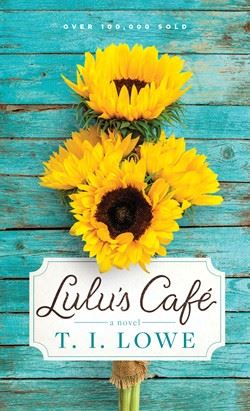What Are You Addicted To? Warning Signs and Ways to Overcome

I told a Sunday school class one time that I have an addiction to sugar. The response was exactly what I anticipated. Laughter filtered through the group.
Once it calmed down I asked them if they would have responded with laughter had I confessed to having an addiction to cocaine. Dead silence and downcast eyes was the response. Again, it was exactly what I expected. From Sunday school lessons to sermons, we often hear drugs and alcohol being mentioned as sinful addictions, and they are.
But what about all the other facets of addiction?
I wasn’t joking when I confessed to my sugar addiction.
I battle overeating, aka gluttony, and boy have I discovered the Bible has a lot to say about this sin.
When I am bored, lonely, or in a mournful mood, I turn to sweets to fill the void. I’ve let it get out of hand a time or two in my life, allowing the scale to tip up to unhealthy.
Confession: I have been intoxicated more times from overindulging in food to the point I cannot think straight than I have from alcohol. Maybe you’ve experienced this type of intoxication after your Thanksgiving meal or leaving the scene of the crime at the all-you-can-eat buffet.
In the Bible, drinking an excess of wine is mentioned with eating in excess. For me, this has given me a clearer understanding that my overeating is just as sinful as alcohol addiction.
If we’re being honest, we all have one or more addictions.
Take a moment to review what vices you struggle with, and don’t look at me all spiritual!
Addiction is anything you do in excess—legal or illegal—so ponder this for a minute and then give yourself a good long look. I understand that it’s uncomfortable to give ourselves a candid assessment, openly admitting to things we would rather keep ignoring or hidden. No one wants to expose skeletons in their closet, but I think it’s necessary if we want to overcome our addictions.
Admitting to our own will help us learn to be more compassionate to individuals who are dealing with other facets of addiction.
There are so many facets to addiction.
Addiction can look like the woman who has lost her grip on shopping. She buys just to buy for a moment of contentment; only to find it fading as soon as the tags are removed from the purchase. Wanting to recapture that feeling, she turns right back around and shops more.
It continues until her husband finds shopping bags hidden around the house and the credit card bill out of sight.
It can look like the patient who is overmedicating himself with his prescription drugs. The patient thinks it’s okay because the pills have been prescribed. Surely an extra dose isn’t bad.
I could go on and on with examples. Drugs, alcohol, sex, food, shopping, porn...
Anything we do in excess is an addiction.
Overcoming addictions.
The first step is to admit you have a problem.
I’ve done this and have asked God to forgive me for eating to excess. And to also forgive me for judging others whom I’ve viewed as having a more “sinful” addiction than mine.
People may want to argue that I’m hurting no one by overeating, but that’s not true. I’m hurting my temple and being a poor example to my children on how to take care of my body. So go ahead and figure it out and have a talk with God about it. He’s forgiving and compassionate and is a pro at keeping secrets. No need to be shy with God.
So after tackling the first step, seek help.
I don’t mean for you to confess it as I have to the world through this article. No need for that unless you are being led that way. Handle getting yourself some help privately, keeping it in the circle of your close confidants. I’ve spoken to doctors, nurses, trainers, and others with the same struggle on how to overcome my poor eating habits.
I’m a work in progress, and so I encourage you to view yourself the same way. If that looks like counseling or rehab, then do it for your betterment. Seeking help isn’t a sign of weakness. It’s a sign of courage.
A painful step: avoid the places that make succumbing to your addiction convenient.
I avoid the bakery at the grocery store and try my best not to buy Little Debbie cakes. You may have to do away with your credit cards. Or cut out the Internet. Or ask friends to meet at restaurants where alcohol isn’t served. Or speak with your doctor about weaning you off a certain medication. None of these actions are easy, but I pray that you’ll brave them anyway in order to get yourself healthy.
I’ve also had to diligently seek God and his peace to fill the void that creeps up on me. I think it’s our human nature to look for comfort in various forms of indulgence, but I’ve come to realize they’re only temporary fixes.
I have to focus on God and his Word when I’m feeling overwhelmed and want to down a box of donuts. There’s supernatural power in seeking him to fill our voids. We just need to tap into it.
Forgiving yourself for addictions.
I don’t know about you, but I am my worst critic and I’m so hard on myself. In the past year, I’ve tried working on this by being more compassionate and not beating myself up each time I slip and make a mistake.
I’ve also come to realize that some people in your life may not want to show you compassion or forgiveness, but don’t let that hold you back from seeking a healthier life. One of my favorite Bible verses is John 10:10. “The thief does not come except to steal, and to kill, and to destroy. I have come that they may have life, and that they may have it more abundantly.”
Don’t allow addiction and the guilt over it the power to rob you of the abundant life Jesus has prepared to give you. If that means you have to part ways with some people in your life, then I pray for your strength to do it for yourself.
Lulu’s Café showcases two addictions—alcohol and food. The main character easily makes assumptions about the town drunk, but after finding out what was behind his addiction, Leah comes to terms with her wrongfulness. In this following excerpt, she realizes this. I hope you will apply it to your life as well.
Face your addictions and vices, and be more supportive of those who are battling other facets of addiction.
“I’m such a hypocrite.” She was right disgusted with herself for being so judgmental about Jessup.
“Ain’t we all,” Lulu commented.
“I’m no better than Jessup Barns. Here he is coping with a bottle of liquor as I point my finger at him in judgment, while I cram large amounts of junk food in my mouth to cope.” Leah shook her head.
“It’s easy to point out someone else’s sin sometimes. But...hey...” Lulu patted Leah’s hand to get her attention. “I think both of you are on the wagon at the present.”
“I just feel so bad for him...”
“Jessup doesn’t need pity. He needs support, yes, but not pity. Maybe you can go up on a visitation day and share with him how you struggle with your grief. Maybe the two of you can help one another move on from what you’ve endured,” Lulu said.

Photo Credit: ©GettyImages/imtmphoto
Originally published June 05, 2019.







